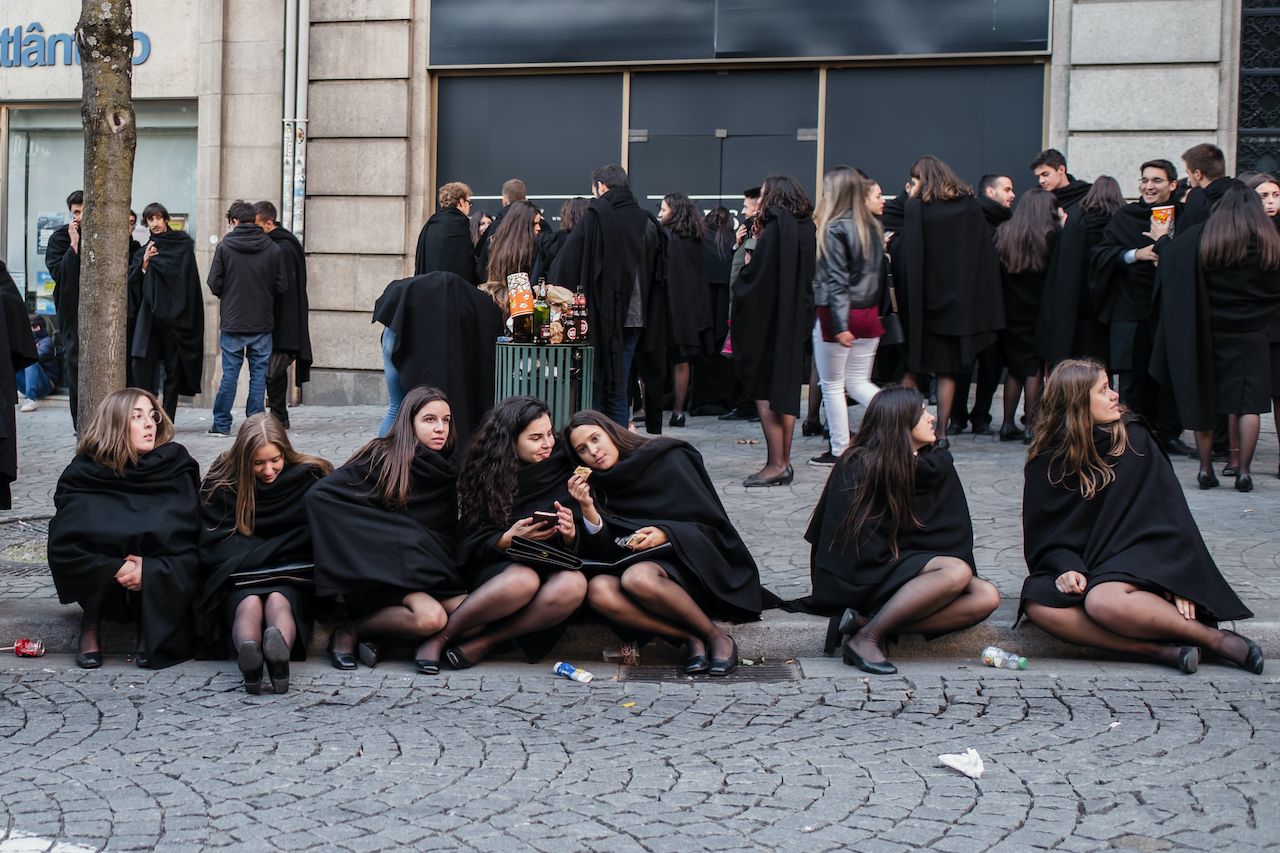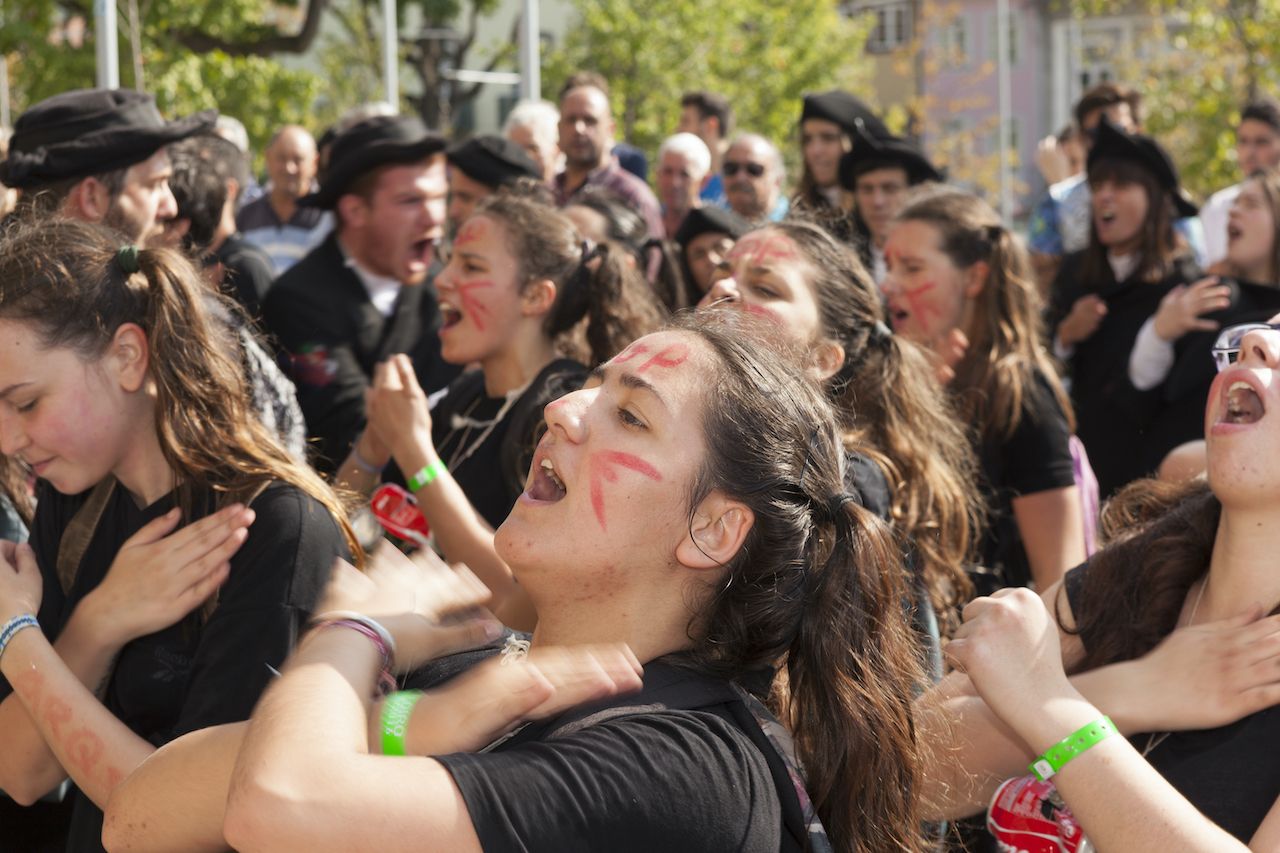Every September, students cloaked in long black capes parade through Portugal’s university cities while plainclothes freshmen perform embarrassing stunts like they’re pledging Hogwarts Greek life.
This analogy is not entirely off. Praxe is an academic tradition designed to initiate university freshmen. First-years are publicly hazed, much like fraternity and sorority hopefuls at American schools. Older students oversee the antics dressed in capa e batina, a “cape and cassock” combo modeled on 500-year-old clergy robes that completes the traditional academic uniform. Many believe this uniform also inspired J.K. Rowling’s vision for the Hogwarts dress code.




